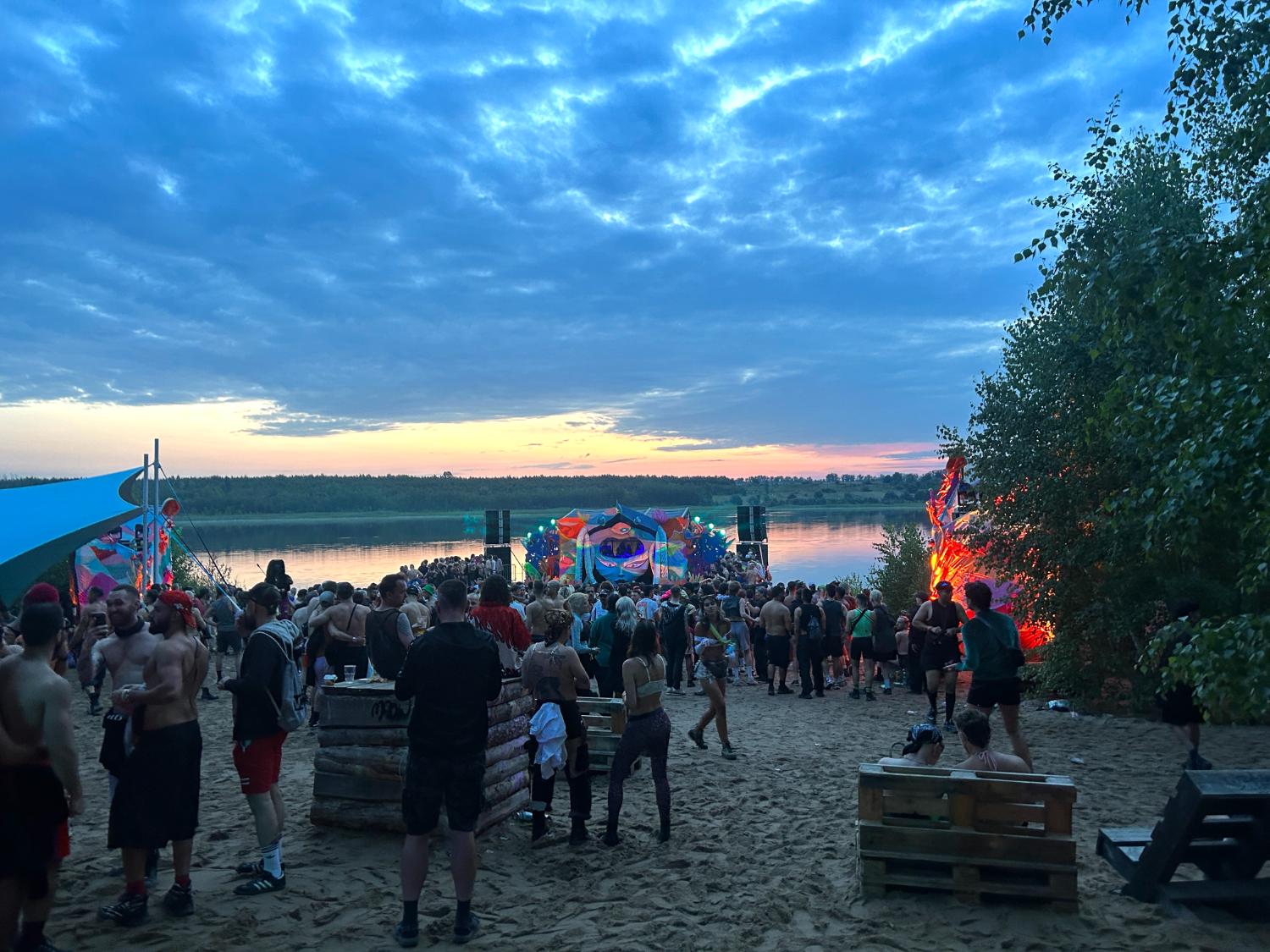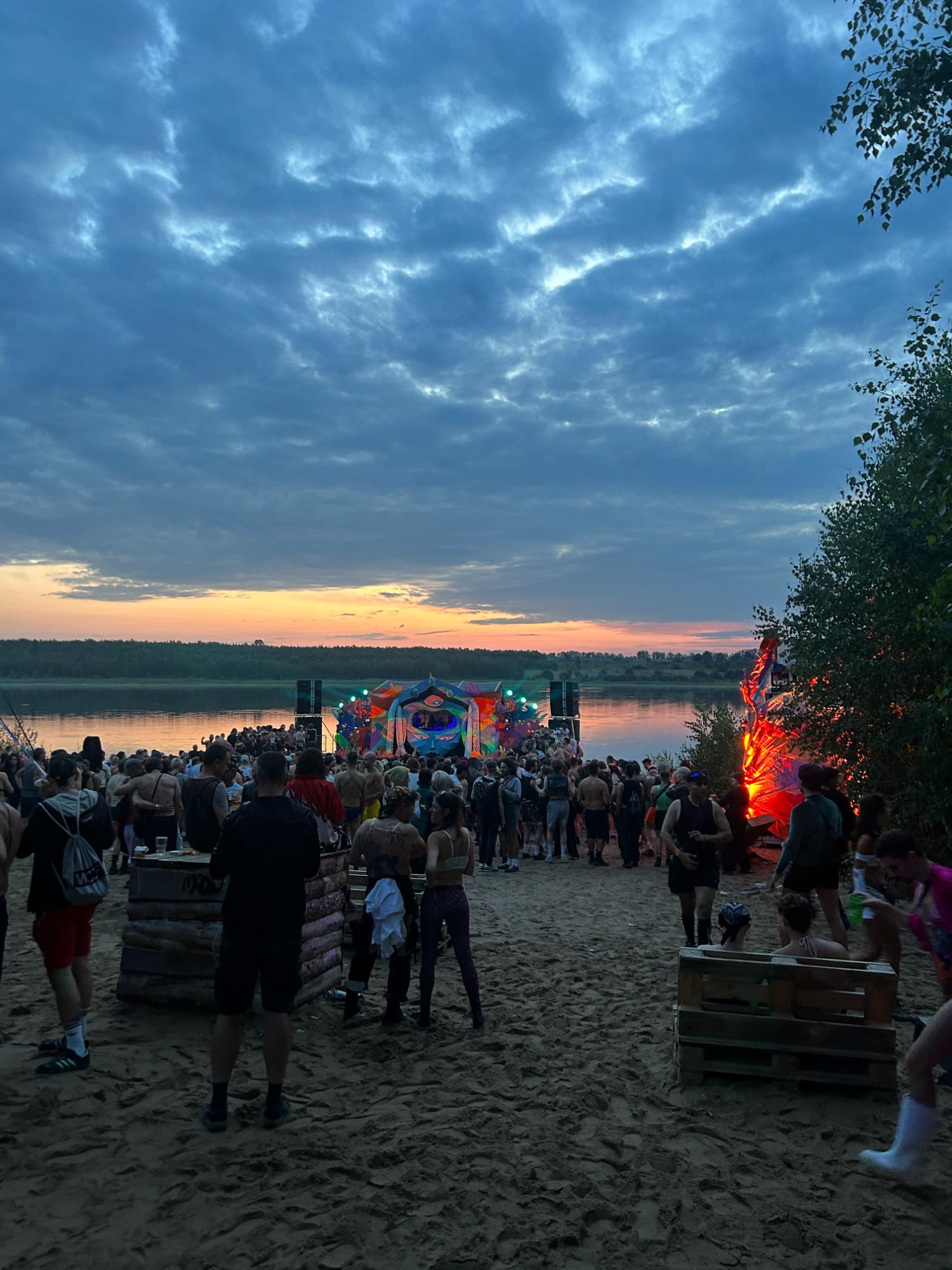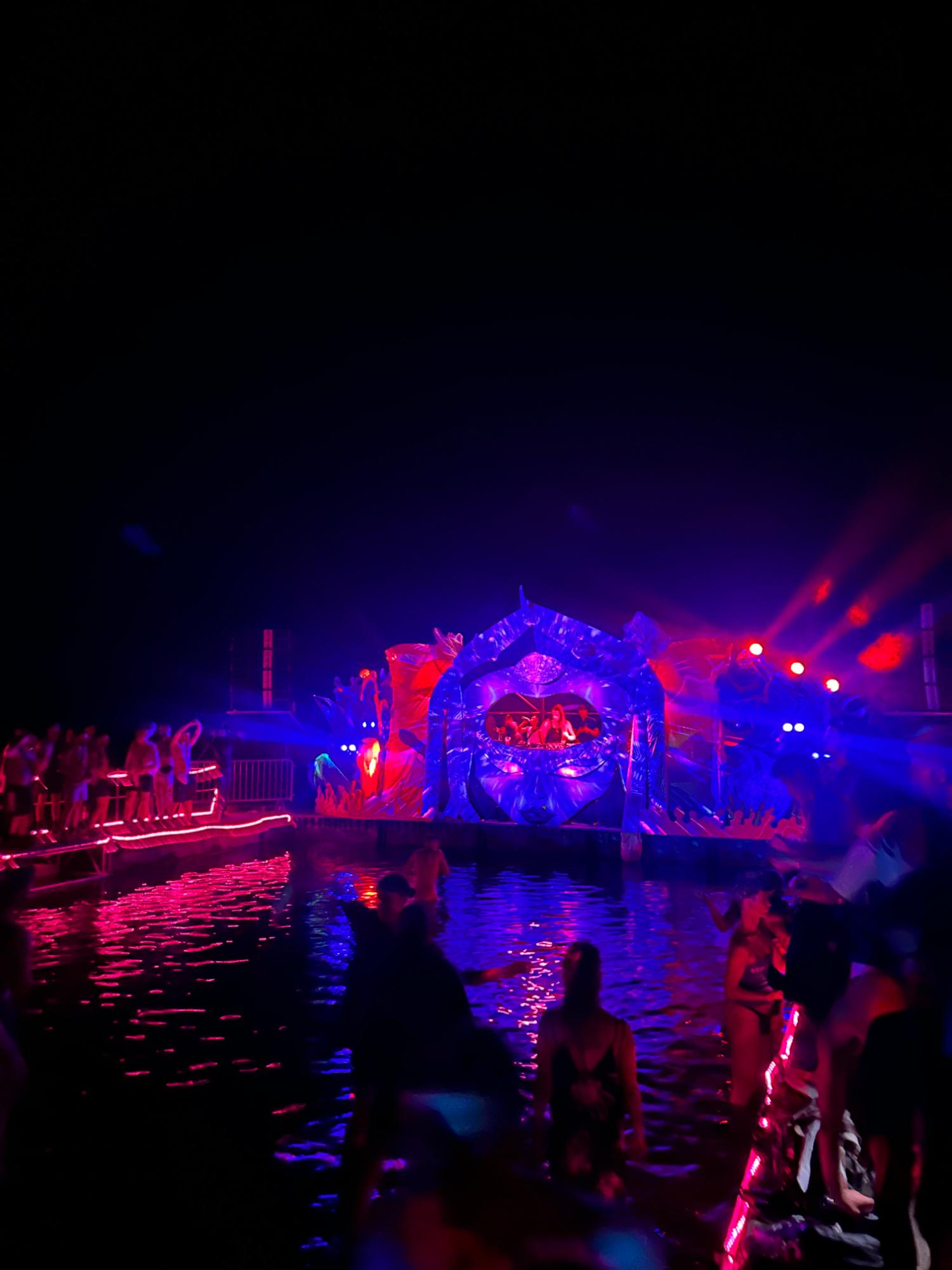Whole Festival 2024 – A Queer Paradise Tested by Growing Pains
Whole Festival 2024 Review

As the echoes of Berlin’s CSD fade into the July twilight, a different kind of celebration begins to stir—a pilgrimage for the LGBTQIA+ community that leads to WHOLE Festival, a gathering that has quickly become the spiritual close to a summer of pride.
Since its inception in 2018, ; it has captured the hearts and imaginations of queer people across the globe and with high hopes and expectations, we made our way to the Ferropolis Peninsula, about 140 kilometers from Berlin, to see if WHOLE Festival truly delivers on its promise.
Ferropolis, known poetically as the “City of Iron,” is a place where the ghosts of mid-century industrial might loom large, their rusting carcasses of mining machinery standing guard over the peninsula. It’s a setting that feels almost cinematic—both awe-inspiring and haunting, a perfect backdrop for a festival that dares to be different. But this year, getting there was less about cinematic arrivals and more about logistical nightmares. Railway disruptions threw a wrench in the works for many, leaving them scrambling for alternatives. WHOLE partnered with Bassliner to provide coaches from major cities, but these quickly sold out, leaving a throng of ticket holders in the lurch. The festival’s in-app forum turned into a chaotic marketplace, with desperate attendees pleading for spare bus tickets. We, too, almost fell victim to this transport debacle, saved only by a stroke of luck that got us seats on one of the last buses out of Berlin. Once aboard, the journey was smooth and uneventful, a brief respite before the immersion into festival life.

Upon arrival, any worries about missing out on a good camping spot were quickly dispelled. Despite our late Friday start, the Ferropolis grounds offered ample space, a stark contrast to the overcrowded experiences of other festivals. The ease of setting up camp was a promising start, hinting at a weekend that could be as relaxed or as wild as one wanted.
WHOLE Festival 2024 offered more than just good vibes, with a stellar lineup of DJs and activities. It was hard not to blow our festival load on the first night lineup alone. With music spread across six stages, we spent the first few hours exploring the many amazing artists and soaking in the crowd and atmosphere. Standout performances included fka.M4a, Roi Perez, and JakoJako. As much as I wanted to stay for JakoJako’s entire set, I had to force myself to bed to be ready for Day 2.
But it wasn’t just the music that marked a shift this year. WHOLE’s decision to go cashless, a move meant to “to reduce the time spent in queues and to remove the hassle of carrying wallets”, ended up causing more confusion than convenience. While cashless systems are becoming more common at festivals, their execution here felt clunky. Attendees were often left bewildered, held up lines unable to pay when their wristbands ran low on credit, and the bar staff seemed just as lost.
The pfand (deposit) system, where returns on bottles and cups were limited, only added to the frustration. Typically, a deposit is charged on bottles and cups, refundable upon return. However, this year, there was a limit on the number of returns allowed, effectively forcing attendees to pay a non-refundable deposit after a few orders. Bar staff offered no explanation to the legally dubious non-refundable deposit system, leading to frustration and making a bottle of Coke cost upwards of 7 euros.
Saturday dawned bright and promised to be the hottest day of the festival. True to form, we joined the crowd heading down to the lake, a perfect display of community and freedom was on full display. Here, under the blazing sun, the spirit of WHOLE was most alive. The lake became a sanctuary, a place where bodies of all shapes, sizes, and states of undress mingled freely, where the shared experience of queerness transcended the need for words. If the night belonged to the beats, the day belonged to the lake, where the festival’s true heart could be felt. After soaking up the sun and the good vibes, we ventured back to the festival grounds, though lunch proved a disappointment. The bibimbap I had was, without exaggeration, the worst—and most overpriced—I’ve ever encountered. But the food’s mediocrity was quickly forgotten as we returned to the beach stage, where Dragmother and Suze Ljo delivered sets that were as refreshing as a cool dip in the lake.

However, the evening’s festivities took a sudden and unsettling turn. Without warning, we found ourselves herded into the Arena Stage, with rumours of “technical difficulties” buzzing through the crowd. The atmosphere grew tense as whispers of something more sinister—possibly even a death—began to circulate. The sight of police vehicles inside the festival grounds only heightened the sense of unease. Hours later, WHOLE posted on Instagram, stating that the lockdown had been in response to a “threat that was later proven to be false.” Yet the lack of any real-time communication on the festival grounds left many of us feeling anxious and in the dark. As if to mirror the mood, the skies opened up, and torrential rain began to fall, turning what should have been our final night of celebration into a dampened retreat back to our tents.
Despite these missteps, there’s one element of WHOLE that stood out above all else: the crowd. In the end, it’s the people who define a festival, and at WHOLE, the crowd was nothing short of outstanding. This was a gathering of individuals from all corners of the globe, united not just by their love of music, but by a shared understanding of what it means to be queer in a world that often misunderstands. Conversations with fellow festivalgoers were among the highlights of my weekend, each interaction a reminder that WHOLE is more than just a festival; it’s a community, a safe haven where queerness is celebrated in all its forms. And as for the rumoured FLINTA vs. cis-gay tension that had been hyped up online? It was little more than a storm in a teacup, the product of faceless online trolls unable to take valid feedback from minority Flinta attendees rather than any real divide within the festival.
In the end, WHOLE Festival 2024 was a success, though not without its FAULTs. It’s clear that WHOLE is still growing, still learning how to meet the needs of its ever-expanding audience. But in a world where safe spaces for the global queer community are still too few and far between, WHOLE has managed to carve out a place that feels like home. It’s a place where you can dance, laugh, and cry without fear of judgment, where you can be your truest self. And for that, it’s worth returning to, year after year. Here’s hoping that next year, WHOLE takes the lessons of 2024 to heart and comes back even stronger.
Check out our other festival reviews below!
Glastonbury Festival 2024 Review: A Comprehensive Review of Unforgettable Performances